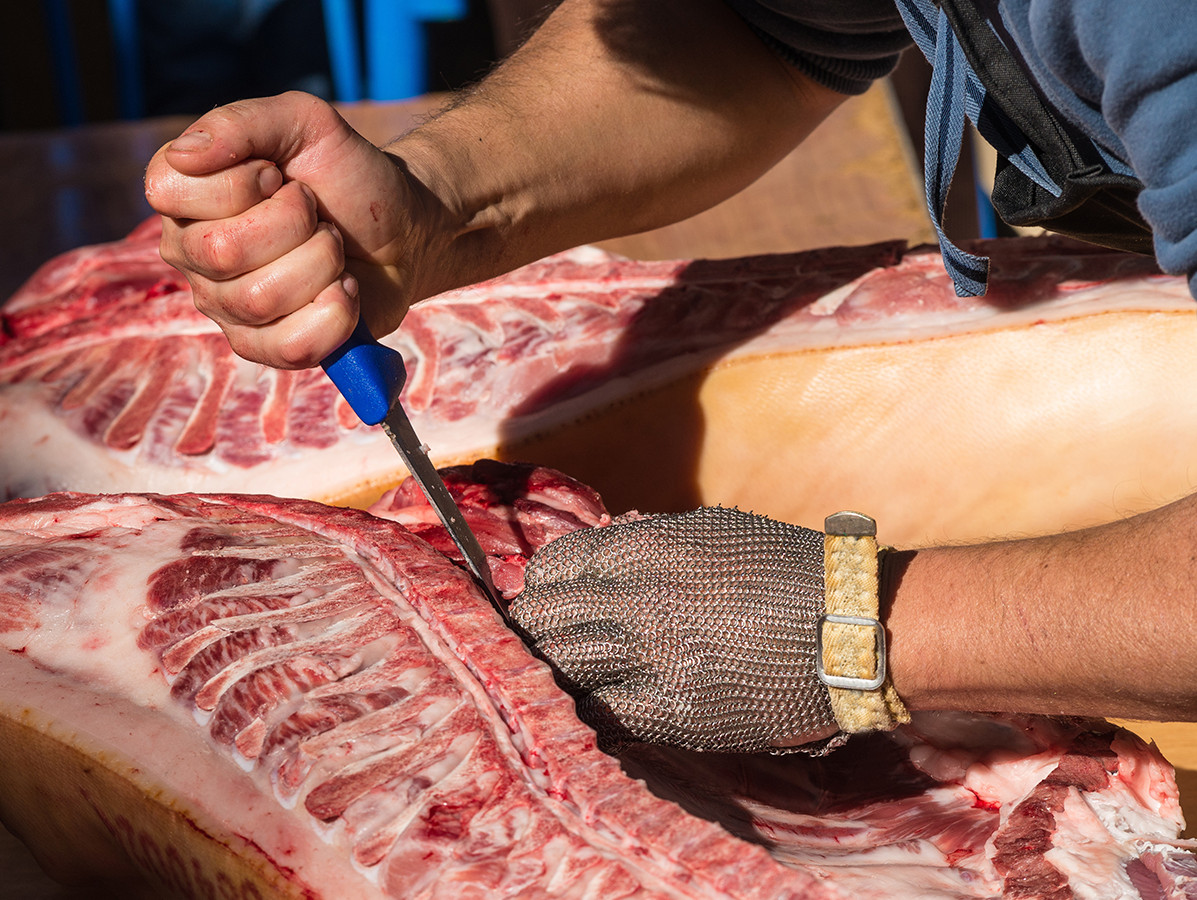
In the summer of 2021, various talks were held with the then Ministers of LNV and SZW, trade unions and the Animal Protection Society about the position of employees in the meat sector. These talks led to an initiative by the COV and its members under the slogan "Towards sustainable employment in the meat sector". The members of the COV aim to employ as many as possible of their own employees who work with live animals.
New employees for a critical production function in the slaughterhouse part will be employed by the COV. Finally, the COV wants employees who have been working in a production position at the company for more than two years to be taken on as employees. This is subject to the condition that they reside in the Netherlands permanently and have their own accommodation in the immediate vicinity.
The COV monitors the progress of this initiative by conducting a survey among its members every six months. Compared to the zero measurement as of 1 July 2021, 219 temporary agency workers were employed by the COV. This confirms the movement that the SEO agency has also identified of a gradual shift towards more people being employed in the red meat sector. The current labour shortage, the uncertainty in the market regarding the impact of the new nitrogen policy, the commercial relationship with employment agencies and, in particular, the lack of suitable accommodation are the main challenges that companies are facing in order to make faster progress.
The COV and its members have also recently taken extra measures to better guarantee animal welfare at slaughterhouses. For example, every red meat slaughterhouse must sign a contract with an independent animal welfare specialist (DWS). The DWS knows the company, regularly performs a peer review of the assurance of animal welfare, helps the company to draw up points for improvement and produces an annual report. All employees who come into contact with live animals receive annual refresher training, which includes the use of camera images from the farm. The specific additional agreements on guaranteeing animal welfare at slaughterhouses are part of the Code of Conduct of the COV members. This was presented to the Ministry of Agriculture, Nature and Food Quality on 7 April 2022.
In addition, in the new collective labour agreement for the meat sector (as of 1 March 2022), important agreements have been made to further improve the position of flex workers and international employees in the meat sector:
The COV also sees an important role for the trade unions and the government in making work in the meat sector more sustainable. The movement we have set in motion will only succeed if we, as the Netherlands, remain attractive to current and new employees. This requires an integral approach in which we not only focus on international employees, but also want to reach new target groups on the Dutch labour market. To this end, we are consulting with the trade unions on flanking policy and tailor-made employment conditions that are closely aligned to their specific needs and circumstances. And we want to work actively with local and regional authorities to create more suitable housing in the immediate vicinity of our companies. Unfortunately, the initiatives in this respect have so far come up against local problems in obtaining suitable locations in the direct vicinity of the meat processing companies.
Source: COV
Source: ©Shutterstock.com/Olaf Speier